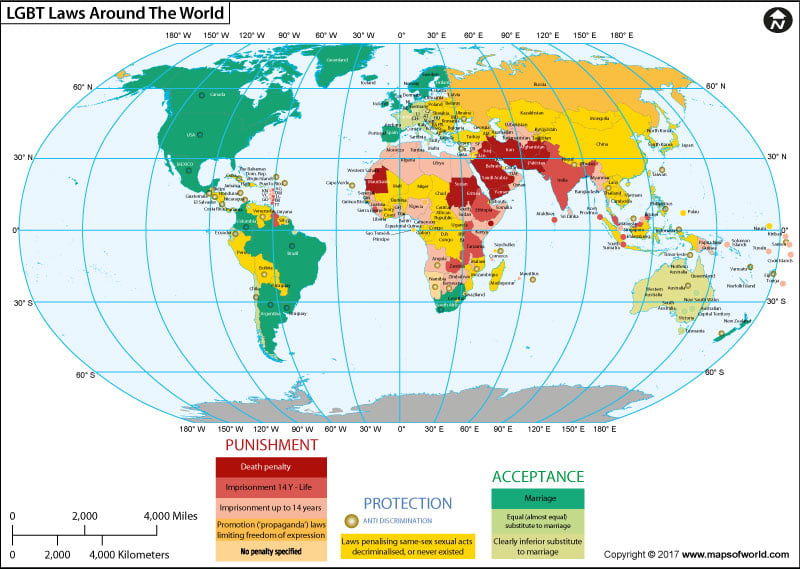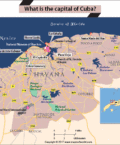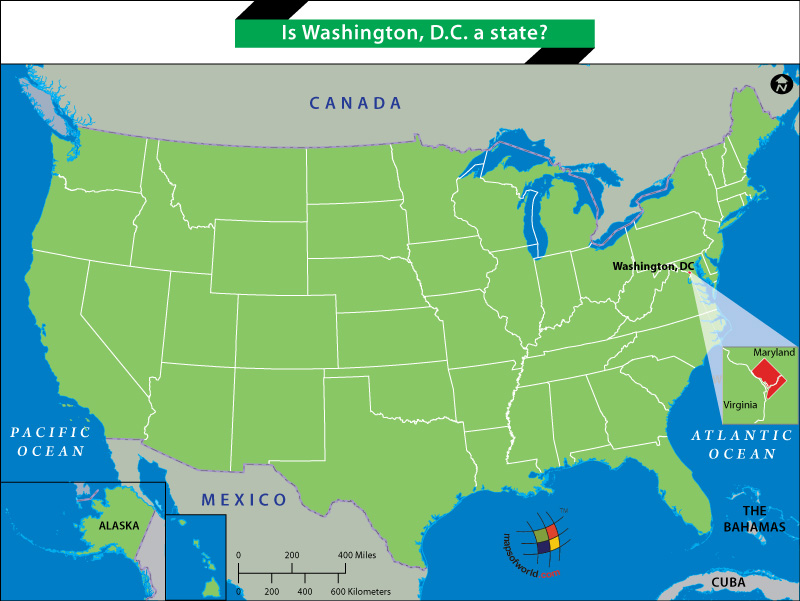News and Updates
The debate centered on recognizing the rights of the LGBT (Lesbian, Gay, Bisexual, and Transgender) community is a historic one. While the LGBT community has been subject to brutal persecution, some nations have been surprisingly accepting of LGBT rights, and much progress has been made in recent years to support the community as a whole.
LGBT Rights and the United Nations
The demand for recognizing LGBT rights as human rights has been a long-standing one. The United Nations Human Rights Council passed a resolution on June 17, 2011, recognizing LGBT rights. The Human Rights Council, the highest international body for human rights, passed the resolution after gaining a favorable vote from twenty-three nations. Nineteen countries opposed the resolution, while three abstained from voting. Most of the opposing nations were Islamic or African nations. Representatives of these countries stated that the issue was a regional one, and the vote found popular endorsement in the religious and cultural sentiments of the people. The issue is one of national jurisdiction, the opposing nations claimed. South Africa, having proposed the resolution, attracted severe criticism from Nigeria. The Nigerian representative claimed that the people of South Africa did not support LGBT rights.
South Africa and other nations in support of the resolution claimed that it was imperative to pass the resolution in the face of the opposition, since the governments of many nations were not willing to preserve and protect the LGBT community from violence and persecution.
In the United States, six states allow same-sex marriages Connecticut, Iowa, Massachusetts, New Hampshire, New York, and Vermont. New York was the latest to allow same-sex marriages, enacting the law on June 24, 2011. While New Jersey, Maryland, and Rhode Island do not allow for same-sex marriage yet, they recognize same-sex marriages performed elsewhere. Washington and Maryland have passed laws endorsing same-sex marriages but these laws are yet to be enforced.
Joint adoptions by same-sex parents are recognized in many states including California, Connecticut, Delaware, Hawaii, Illinois, Indiana, Iowa, Maine, Maryland, Massachusetts, Nevada, New Hampshire, New Jersey, Oregon, Rhode Island, Vermont, and Washington. The District of Columbia is one of the most LGBT-friendly regions of the United States, allowing same-sex marriage and adoption in addition to enforcing non-discrimination laws.
History of LGBT Rights
Historically, homosexuality was not always discouraged in societies around the world. In fact, several famous leaders in history, like Alexander the Great, Julius Caesar, and Trajan, a Roman emperor, were known to have same-sex relationships. Nero, Emperor of Rome performed same-sex marriage ceremonies for men. The Greek and Roman cultures in general accepted homosexuality to a degree. In the East, homosexuality has been acknowledged since early history, and even celebrated.
Anti-homosexual laws did not exist in the West until 342 AD, when Christian Emperors Constanius II and Constans first banned same-sex marriages, followed by Emperors Valentinian II, Theodosius I, and Arcadius declaring homosexual acts illegal, and making them punishable by public execution in 390 AD.
The persecution of homosexuals spread to the Visigothic Kingdom of Spain in 589, when its leaders became Catholics. Homosexual acts were punished by castration, corporal punishment, and exile.
From the 12th through the 17th centuries, sodomy continued to become criminalized and punished by execution or exile in countries around Europe. The late 17th century saw the beginning of the end for criminalization of sodomy, beginning in 1791 with France, followed by the Kingdom of Prussia in 1794.
The 19th century was a century that saw both the criminalization and decriminalization of homosexual acts in various countries around the world. On August 29, 1867, in one of the first big steps toward LGBT rights, Karl Heinrich Ulrichs of Germany became the first openly homosexual man to publicly speak out against anti-homosexual laws.
In 1933, Nazi Germany banned and persecuted homosexual groups, who were sent to concentration camps, and the Institute for Sexual Research's library was destroyed.
The latter half of the 20th century saw many changes, and LGBT issues were brought to the forefront along with other civil rights issues.
In 1969, the Stonewall Riots, a series of protests to fight against police raids on gay-friendly bars occurred in New York City, launching a worldwide movement to fight for gay rights.
One year later, to commemorate the anniversary of the Stonewall Riots, the first Gay Pride marches took place around the country in Los Angeles, Chicago, and New York.
In 1972, Sweden made it legal for transsexuals to change their sex, even providing hormone therapy as part of the country's free healthcare system. In 1980, the Democratic Party began supporting LGBT rights, and the Human Rights Campaign was founded, becoming the largest organization working towards LGBT equality.
In 1992, the World Health Organization declared that homosexuality should no longer be considered an illness.
The first nation to extend marriage rights to same-sex couples was the Netherlands in 2001, followed shortly after by Belgium in 2003, Spain and Canada in 2005, South Africa in 2006, Norway and Sweden in 2009, then Portugal, Iceland, and Argentina in 2010.
Criminal Offense
Despite the endorsement of the United Nations, LGBT rights have gone unrecognized in many countries. Far from recognition, members of the LGBT community face violence, persecution, and seclusion in many nations. In the following countries, same-sex relationships are deemed a criminal offense, punishable with sentences up to 10 years of hard labor and/or imprisonment.
| Afghanistan | Eritrea | Papua New Guinea |
| Algeria | Ethiopia | Qatar |
| Angola | Gambia | Saint Lucia |
| Antigua and Barbuda | Guinea | Saint Vincent and the Grenadines |
| Bangladesh | Kuwait | Sao Tome and Principe |
| Barbados | Lebanon | Senegal |
| Bhutan | Liberia | Solomon Islands |
| Botswana | Libya | Somalia |
| Brunei | Malaysia | Sri Lanka |
| Burma | Maldives | Syria |
| Burundi | Morocco | Tanzania |
| Cameroon | Mozambique | Togo |
| Comoros | Namibia | Trinidad and Tobago |
| Dominica | Oman | Tunisia |
| Egypt | Pakistan | Uganda |
Same-sex relationships are punishable with a death penalty in:
| Iran |
| Mauritania |
| Nigeria (Male Same-sex) |
| Saudi Arabia |
| Somalia |
| Sudan |
| United Arab Emirates |
| Yemen |
Most of these countries cite religious and cultural reasons for penalizing gay and lesbian relationships. Surprisingly, a number of countries and societies that discriminate against male same-sex relationships do not deem lesbian relationship a criminal offense. Countries Where Male Homosexual Relationships Are Criminal Offenses
| Belize | Malawi | Singapore |
| Cook Islands | Mauritius | Swaziland |
| Ghana | Nauru | Tonga |
| Grenada | Nigeria | Turkish Republic of Northern Cyprus |
| Guyana | Palau | Turkmenistan |
| Jamaica | Saint Kitts and Nevis | Tuvalu |
| Kenya | Samoa | Uzbekistan |
| Kiribati | Seychelles | Zambia |
| Lesotho | Sierra Leone | Zimbabwe |
Religion and LGBT Rights
Restrictions on LGBT rights have been associated with conservative religious views since the first known same-sex marriage ban in 342 AD by Christian emperors in Rome. Many of the arguments against LGBT rights are based on religious beliefs. Even in countries with a separation between religion and government, the two can overlap, resulting in the creation of government regulation on the sexuality and morality of its people. Aside from the legal aspects surrounding LGBT rights, there's also the issue of societal acceptance of LGBT rights and discrimination, which are ongoing issues.
While many of the major religions have taken official stances against LGBT rights, liberal individuals and sectors of many of these religions support LGBT rights even when their religion does not.
Here's a quick look at the views on LGBT rights from a few of the major world religions:
Hinduism— Hindu texts describe and celebrate same-sex relationships and love, and even contain transsexual demigods and saints. A variety of views are seen in the Hindu religion, ranging from supportive to neutral to discouraging.
One of the first major religious organizations to speak out in support of homosexuality, Hindu leaders issued the following statement in 2009: "Hinduism does not condemn homosexuality".
Judaism— The Hebrew Bible prohibits homosexuality, and violators are punishable by death. In modern society, Jewish communities hold a variety of views on the matter. Orthodox Jews consider homosexual acts sinful. Reform, Reconstructionist, and Liberal Jews are generally more progressive and accepting of homosexuals, allowing lesbian and gay rabbis and same-sex marriages.
Christianity— There are also a wide variety of views across the many Christian denominations that run the gamut from complete condemnation to acceptance. Like in Judaism, homosexual acts are often condemned as sinful in the Christian doctrine (particularly in the Roman Catholic, Eastern Orthodox, Methodists denominations). The Catholic Church requires chastity for homosexuals.
Some denominations of Christianity support same-sex marriage and allow gay clergy. In fact, one denomination was created especially for the LGBT community, called the Metropolitan Community Church.
The Church of Latter Day Saints (Mormons) condemns homosexual feelings, which they believe their members should be able to control. The LDS Church led a campaign against LGBT rights, openly supporting bans on same-sex marriages.
Islam— The major sects of Islam do not approve of homosexual acts, though some acknowledge that homosexual desires are natural.
The Islamic code, Shari'a, strictly prohibits homosexuality. Some Islamic countries that follow Shari'a Laws punish homosexual relations by death, while more secular Islamic nations have less severe punishments.
Buddhism— The Dalai Lama supports equal rights for everyone, and Buddhist texts acknowledge four genders. Buddhism itself discourages sexual acts in general, when not for procreation purposes.
Sikhism— There are no written laws regarding LGBT rights in the sacred Sikh texts, but its leaders have stated that homosexuality goes against the religion (and nature). Despite this, many followers of the Sikh religion support LGBT rights and equality.
LGBT Movements and Organizations
A number of organizations and movements worldwide work towards securing LGBT rights and providing the community effective support. The International Lesbian and Gay Association (ILGA) and the International Gay and Lesbian Human Rights Commission (IGLHRC) are accredited by the United Nations; the International Lesbian, Gay, Bisexual, Transgender and Queer Youth and Student Organization (IGLYO) and the International Lesbian, Gay, Bisexual, Transgender & Intersex Law Association (ILGLaw) work predominantly in Europe. The Global Respect in Education (GRIN) Campaign and Gay, Lesbian, and Straight Education Network (GLSEN) work with LGBT students and young adults.
Apart from these global organizations, a number of regional organizations are currently advocating LGBT rights. These include the Lesbian & Gay Foundation (LGF), LGBT Network, and Gay and Lesbian Humanist Association (GALHA) in Europe, Boys of Bangladesh, and Seksualiti Merdeka in Asia, National Gay and Lesbian Task Force (The Task Force) and Equality Across America in the US.
Securing Rights
Organizations and agencies working to secure LGBT rights are involved in a number of activities ranging from protection of the community from violence, abuse, and hostility, to securing impartial legislation. While in some countries, basic rights such as the right to education, employment, and even housing are denied, other societies treat the LGBT community as criminals. Securing LGBT rights goes far beyond the right to express one's orientation and make choices.
Top 10 Destinations LGBT Travelers Should Avoid
Some of the most beautiful and attractive tourist destinations of the world may be off-limits for LGBT travelers. LGBT rights organizations advise research prior to traveling. Here's MOW's pick of the ten worst destinations for LGBT travelers:
Barbados— One of the most beautiful and vibrant destinations in the Caribbean, Barbados is a top destination for LGBT tourists to avoid. Gay and lesbian couples traveling to Barbados may end up in prison with life sentences.
Cameroon— Known for its varied landscapes and called "Africa in Miniature," Cameroon is a popular tourist destination. It may not be ideal for LGBT tourists, however. Human Rights Watch reported a shutdown of a gay rights workshop in Yaounde, the capital city early this month.
Egypt— One of the world's most popular tourist destinations, Egypt is not friendly to homosexual travelers. Laws against the LGBT community are strictly enforced.
Jamaica— Sandy beaches and golden landscapes apart, Jamaica has been declared the worst destination for gay and lesbian tourists. Instances of violence, murder, and abuse of LGBT tourists are common.
Malaysia— A popular destination in Asia, Malaysia is keen to retain Islamic values, banning same-sex relationships. In 2000, a former deputy Prime Minister, Anwar Ibrahim was sentenced to a nine year prison term for sodomy.
Montenegro— While most of the Western European nations make great travel destinations for LGBT travelers, society in Montenegro is not quite welcoming yet. While homosexuality has been decriminalized, a legacy of hostility continues to plague the country.
Morocco— Homosexuality is a criminal offense in Morocco. While the culturally rich country is a trekker's paradise, the LGBT community may not find it very warm and welcoming.
Nigeria— Execution by stoning is one of the many punishments meted out to gay and lesbian couples in Nigeria. The Shari'a code is strictly enforced in over twelve states of Nigeria.
Seychelles— Idyllic, romantic Seychelles may not be all that safe for gay and lesbian couples. Homosexuality is illegal in the country and any gay activity is usually kept under wraps.
United Arab Emirates— While the UAE may be a trendy destination for vacations, LGBT tourists are likely to be punished. Capital punishment may not be imposed, but prison terms and sharp fines are common punishments for same-sex couples.
HIV/AIDS
According to the latest study by Centers for Disease Control and Prevention, in major US cities, one in every five young gay men is infected with HIV. The National HIV/AIDS Strategy (NHAS) reveals that about fifty-three percent of all new HIV infections come from the LGBT community in the country. This could mean up to 29,000 newly infected people each year. LGBT activists and organizations believe that securing the rights of the LGBT community would allow for greater awareness to address the issue. Providing for socioeconomic securities for the community would also mean providing financial freedom to avail and sustain treatment.
Given the various religious and cultural diversities of the world, is it legitimate to enforce LGBT rights the world over? Is securing LGBT rights the same as putting limitations on the community? Are LGBT rights Human Rights?
Last Updated on: July 21, 2020







